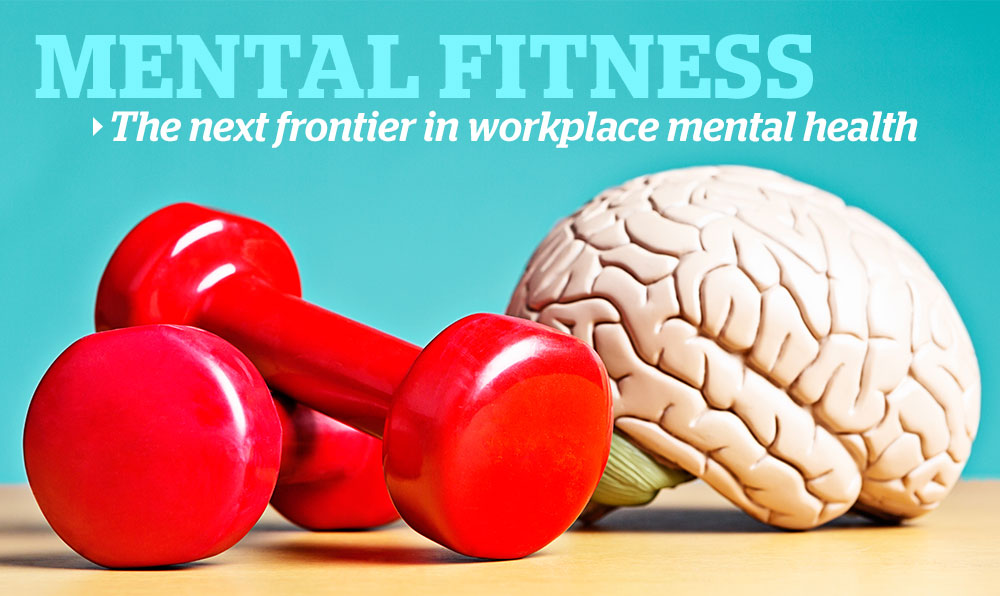

Columns/Blogs
Features
Mental Health
Before implementing a mental fitness plan, you must have a foundation in place
By Bill Howatt

EDITOR’S NOTE: ‘Mental Fitness: The next frontier in workplace mental health’ is a weekly series, in partnership with Dr. Bill Howatt of Howatt HR Consulting in Ottawa. This series takes a deeper look at mental fitness — an approach to prevent mental harm and promote mental health.
“Like physical health, mental fitness success requires a foundation to build upon.” — Dr. Bill Howatt
There is a good reason why some people are not ready to begin working on their mental fitness plan. They do not have the necessary foundation in place to build upon.
This series of articles on mental fitness intends to provide microskills and ideas that support mental health. My goal is to encourage employers to put more focus and attention on employees’ mental fitness as a key strategy for preventing mental health issues.
Let’s start with things to consider for laying a mental fitness foundation.
Before you can focus on what you will do for your mental fitness, it is critical to be clear on how to get your mental fitness foundation in place so you can create a mental fitness plan that will support your emotional well-being, resiliency, and overall mental health.
Psychologically Safe Workplace Awards provide employers tools, data on mental health
I often get asked, “Why are some employees not engaging in mental fitness initiatives?”
The reasons can vary:
- challenges with emotional regulation by being constantly flooded by unpleasant emotions
- experiencing a mental illness or substance use dependency that is not being dealt with
- lack of a mental fitness foundation.
Setting your foundation in place
The following six elements require intention. They take effort to think about and own.
Thinking about all we do not have and that is unfair does little for us to feel content, satisfied, and at peace. Negative self-talk is a sure-fire way to create unpleasant emotions and negative thoughts that drain our mental battery.
There is no magic pill, nor shortcuts to maintain mental health.
Why so many struggle with mental health is we overreact, attempt to hide, or numb unpleasant emotions.
Most of us could never run a marathon without training for it. Life is an emotional marathon with good days and challenging days and there is zero chance we will get rid of unwanted stress.
However, we can learn how to stop fighting, avoiding, or numbing unpleasant emotions. The first thing is to accept they are not bad; they are just emotions that drive our urge to behave. They do not drive our thoughts nor our behaviour. For example, anger is not the problem; what a person does with anger is.
Mental fitness is about intentionally engaging in behaviours to charge our mental battery. This puts us in an optimal position to tolerate unpleasant emotions and cope with them and to manage negative thoughts that impede our mental health.
Purpose: What is your life purpose? What gets you out of bed in the morning? Some examples are to be a loving partner, provider, parent, person, employee, family member, agent of change, or some combination of these. Being clear on our life purpose helps fuel our sense of purpose that when harnessed is a powerful motivator.
Values: What is most important to you? Some examples are family, job, money, children, and community. Values are the filters we use to prioritize what we want most and why we will choose a healthy salad over a chocolate bar four times out of five. One value often missed is a commitment to personal health. Only we can make our health important and value it. Without it, we have nothing.
Accountable for self: Accept that we own our behaviour and choices. Our life circumstances and social connections play a big role in impacting our mood. However, until we accept that we own our decisions and choices, we will be too dependent on others for our success. One powerful foundation step is understanding that it often requires months of self-discipline to form new habits that create emotional well-being. Mental health is much like physical health, where it may take six or more months of self-disciplined dieting before new nutritional habits are formed.
Have at least one trusted personal relationship: Humans need humans to thrive. Making commitments to ourselves is important, as is sharing commitments with trusted relationships as they can amplify accountability and provide a trusted source of encouragement to stay focused on our mental health and when needed, a gentle nudge of reason and hope.
Be aware of the benefits of stress tolerance: Life happens and with it comes unwanted stress, even on days when it is not convenient. We can learn to tolerate stress by accepting that unpleasant emotions and stress will happen and when they do, we do not need to react or run. One paradox is when we focus on rushing to get rid of unpleasant emotions and stress, we amplify them. We dim their influence by accepting unpleasant emotions when they show up and not fight them. With practice, unpleasant emotions that once were painful will gain less attention and focus.
Recognition: One basic some of us take for granted is our breath. Recognize and be grateful for it. Instead of noticing what is not working in your life, spend more time recognizing all you have. This can create pleasant emotions. Also, recognize others’ experiences and needs rather than your own, to help you realize the world does not revolve around what you want.
The above factors provide the how to move forward with building a mental fitness plan.
Not paying attention to your mental fitness foundation can result in higher levels of stopping and starting a mental fitness plan rather than adopting it as a priority for long-term mental health to prevent mental illness or enjoy a higher quality of life.
 Dr. Bill Howatt is the Ottawa-based president of Howatt HR Consulting.
Dr. Bill Howatt is the Ottawa-based president of Howatt HR Consulting.
If there is a particular microskill or topic you would like to see Dr. Howatt write on that supports employees’ mental health in the workplace, please send your request to Talent Canada editor Marcel Vander Wier.
Print this page